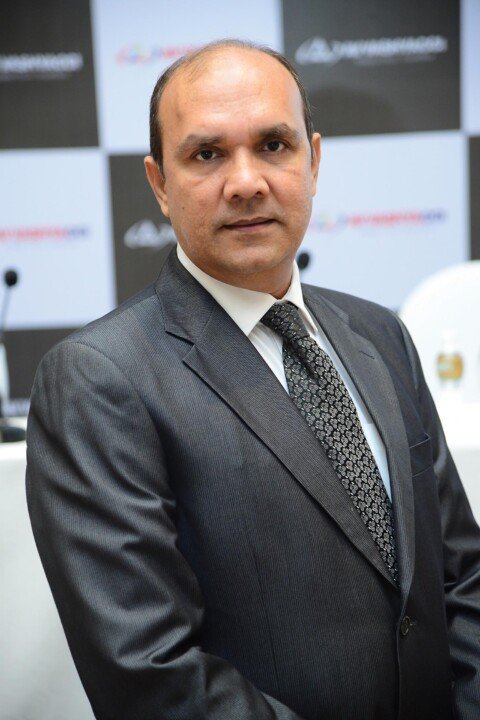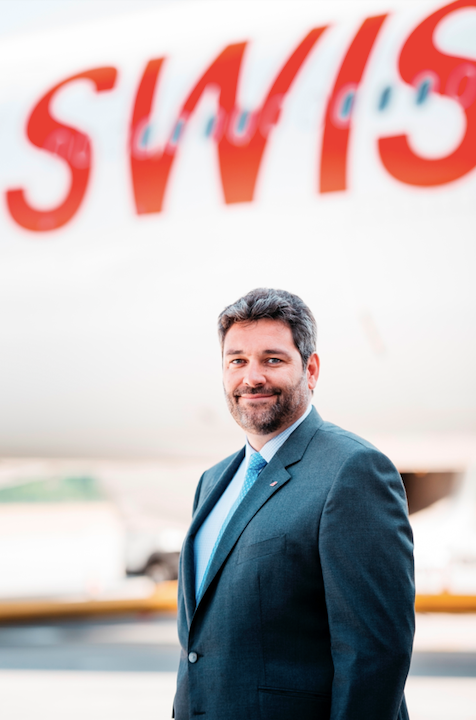In addition to its wide flight network encompassing the globe, Turkish Cargo is a notable logistics solution partner for special cargo shipments. The Istanbul-hubbed airline minimises the risk for healthcare products with a high degree of sensitivity by making use of active temperature-controlled containers, thermal dollies and disposal thermal sheets equipped with thermal isolation features, besides ensuring protection to the highest standards in its special cargo storage rooms with various temperature ranges available at its 3500 sq mt facilities at Istanbul and Ataturk airports. Burak Ömeroğlu, Vice President- Cargo Sales (MESA) at Turkish Cargo, speaks to Upamanyu Borah,more about their sheer objective of raising the bar in performance and operations related to the transport of special cargo, and ensuring compliance to the highest standards with seeking continuous improvement.
What do you view as being some of the main ways in which Turkish Airlines is able to differentiate itself from its competitors?
As a global air cargo brand, Turkish Cargo has a wide range of product portfolio– from general cargo to special products such as pharmaceutical and healthcare, perishable goods, live animals, valuable items, dangerous goods, vulnerable products such as mobile phones and artworks, as well as e-commerce.
We increased our market share to 5 per cent and transported 1 of every 20 air cargo shipments carried throughout the world, while the global air cargo market fell by 17.7 per cent in terms of tonnage in the first seven months, resulting from the pandemic.
One of the fastest growing air cargo carriers, Turkish Cargo experiences incremental demand for all special products every year and increased special cargo share significantly. Special cargo share have gone up to 33 per cent in 2020 from 5 per cent in 2012. One of the most important factors to this success is that we designed products and carried out operations in compliance with international industrial standards by taking references of customers’ demand. As an example of effectively following up with the standards, we can say that Turkish Cargo became the first cargo airline to achieve all three certificates issued by the International Air Transport Association (IATA) – CEIV Pharma, CEIV Fresh, and CEIV Live Animal certifications.
As pharmaceutical products become more and more complex, so do their shipping methods. How do you balance these changes with the need to still provide quality, affordable solutions to your clients?
Increasing regulatory demands and continued volume growth in cold chain logistics worldwide is spurring significant development in smart solutions for tracking and monitoring pharma from origin to destination. At Turkish Cargo, we have implemented one of the latest IoT telematics systems (Telemetry), web portal and ERP technologies (COMIS by IBS) that help our service to comply and thrive in a regulated, competitive environment. We have also been accredited with Qualified Envirotainer Provider (QEP) by Envirotainer, helping us go the extra mile.
Shipments with temperature recorders (data loggers) provide a proof of an uninterrupted cold chain for pharmaceutical logistics and compliance. In case of any deviation, we double check the movement of the temperature-controlled shipment with our COMIS integrated telemetry system and fetch check in and check out history, to see if the excursion happened under our responsibility areas such as our HUB operations, flight or outbound stations.
What are some of the innovative steps Turkish Airlines is taking here in the South Asian region, especially India to better serve customers?
Turkish Cargo has been maintaining its activities in order to realise the best transportation of time and temperature-sensitive pharma and healthcare products so as to make its network even more integrated via Envirotainer operation requirements by adding QEP accreditation to its important Hyderabad and Mumbai stations.
How are you coping with the increased scrutiny from pharma shippers? What factors have allowed Turkish Airlines to effectively achieve and maintain its market leading position?
As an airline and warehouse operator, Turkish Cargo is closely following up on technological and infrastructural developments in the global pharmaceuticals market. This way, Turkish Cargo is aware of the needs of all stakeholders of the time-sensitive air cargo sector– from integrity of the supply chain to trainings, standards and regulations, internal and external audits– resulting in better business communication.
Turkish Cargo strives to maintain its success in the inspections made in definite periods by world’s leading pharma producers. With above, it plans to be an airline which regularly renews itself via continuous improvement activities. Thanks to the new dedicated pharma facility that is being constructed at the new Istanbul Airport Mega Hub, Turkish Cargo aims to be part of one of the most important transit pharma hubs between Asia and Europe.
There has been quite an aggressive cargo-only operations expansion with new destinations added to your network in Asia, Europe, Far East and South America. How has been the response to these additions? Do you see stable or more demand arising?
Turkish Cargo aims to become one of the top 5 global air cargo brands in the world and is committed to carry out sustainable growth in terms of business processes and flight network. We have been adapting our activities to the new market dynamics to meet the needs of our customers and sector partners to offer an enhanced overall service and network coverage. In September, we have added London (LHR), Bangkok (BKK), Singapore (SIN), Beirut (BEY) destinations to our flight network. Bucharest (OTP) and Lahore (LHE) destinations were added to the flight network within the scope of the winter schedule. Accordingly, Turkish Cargo’s total direct cargo network has now reached 95 destinations.
What do you think is learnt from the COVID-19 crisis we are currently living through?
The pandemic affected the industry, borders were closed and transportation restrictions were imposed. Nevertheless, air transportation has been of great importance even during this period, and Turkish Cargo largely contributed to the sustainability of the global supply chain by transporting shipments of food, pharmaceuticals, medical equipment as well as shipments for urgent needs to/from Turkey and the four corners of the world.
During this period, we have experienced a serious increase in demand for Turkish Cargo pharma product, designed for pharmaceutical transportation. As an IATA CEIV pharma certified air carrier, we offer industrial solutions such as dedicated temperature-controlled storage rooms, active containers, and thermal dollies so as to maintain the cold chain, through our specialised TK Pharma Care Team. Turkish Cargo carried more than 30 thousand tonnes of pharmaceutical and healthcare goods, and medical equipment within the first seven months of 2020.
As a global cargo brand, it is one of our missions to transport pharmaceuticals, medical equipment, shipments of food, and we keep on supporting all relevant initiatives against the coronavirus pandemic by ensuring an air bridge via Istanbul.
What position do you see for Indian pharma in the Asian Century?
Indian drug companies are rapidly increasing their presence in Asia, thanks to the world’s most populous countries and growing incomes. Both its size and the speed of expansion are attracting much attention. Nearly 65% of global patents stemmed from Asia between 2015-2017, having derived from the 50 fastest rising innovation cities in Asia. This gives an opportunity for Indian pharma firms to be a part of an Asia-wide innovation arc.
India is the largest provider of generic drugs globally. Indian pharmaceuticals sector supplies over 50% of the global demand for various vaccines– 40% of the generic demand in the US, and 25% of all medicines in the UK. At Turkish Cargo, we are proud to be contributing our part in this sustainable success story.







